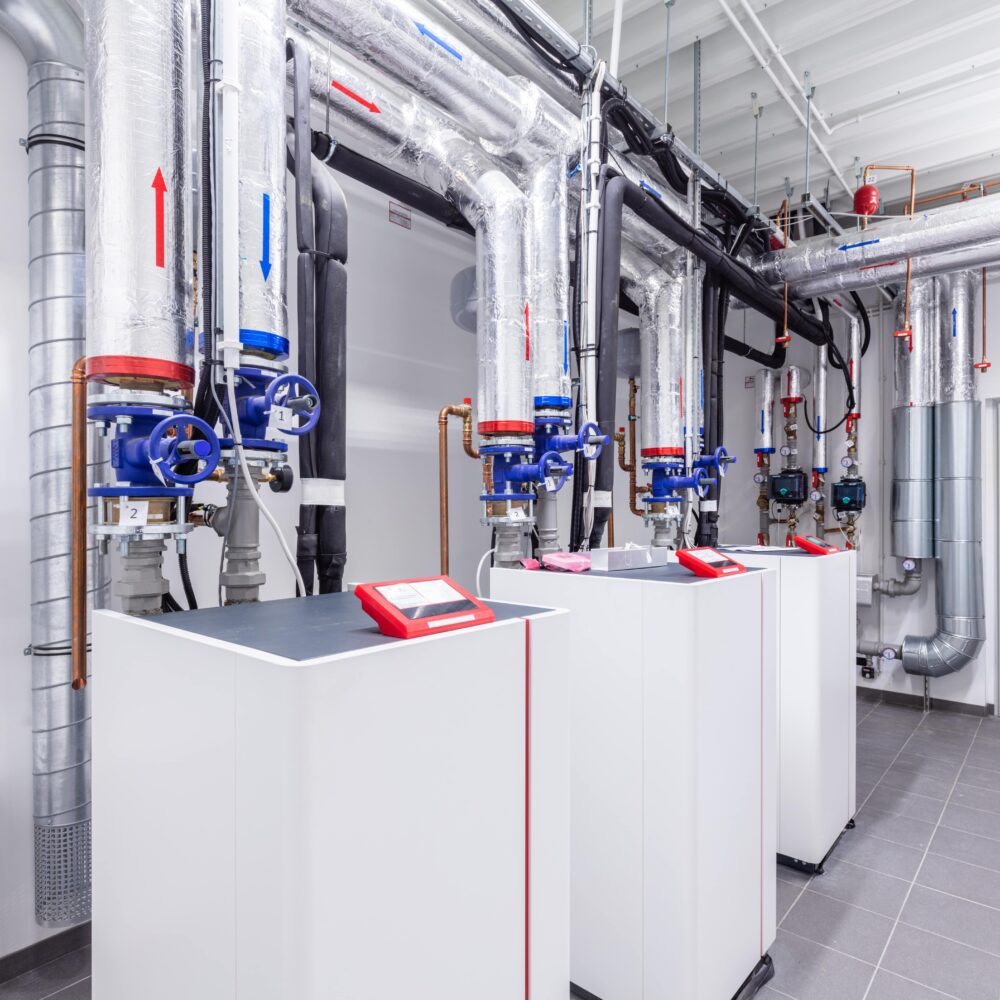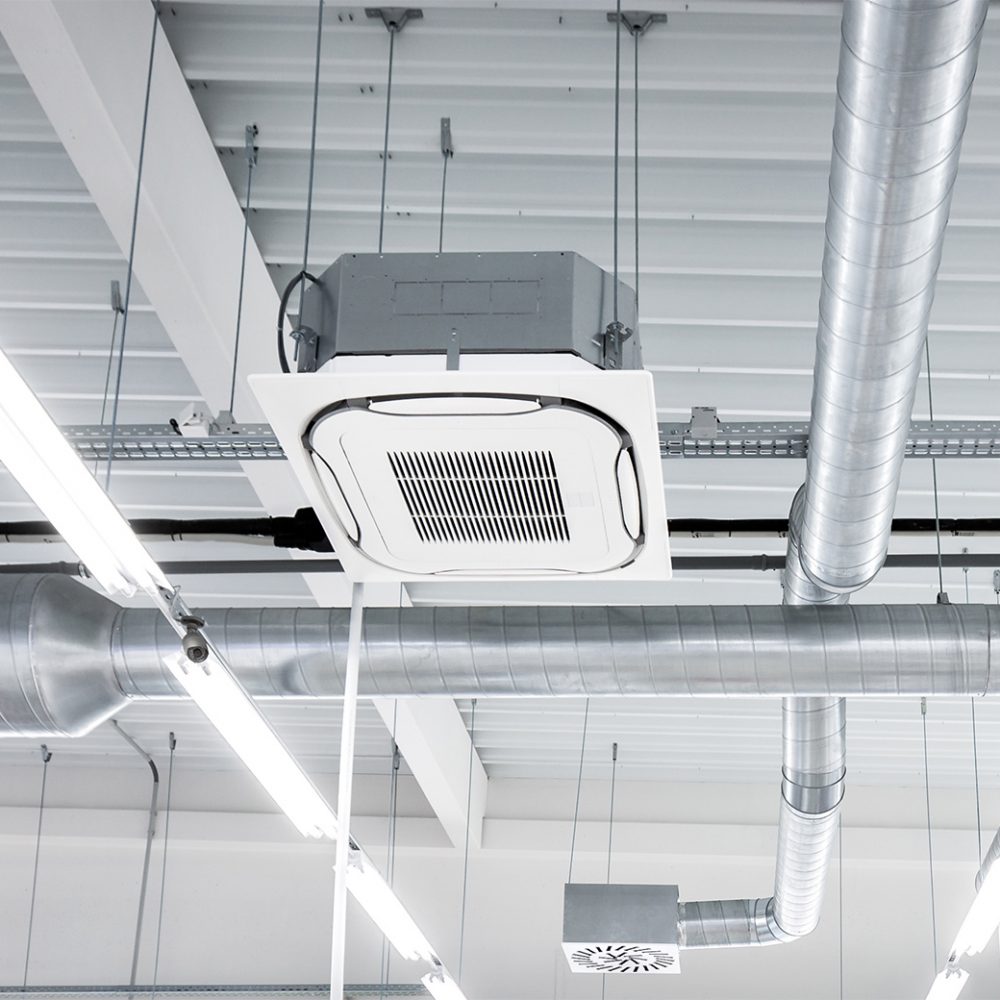

News
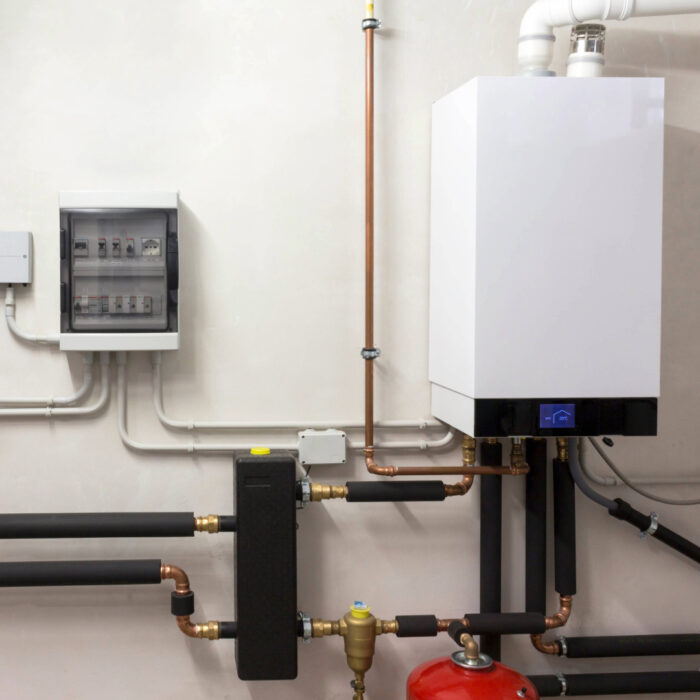
12th November 2024
What does boiler maintenance involve
A commercial boiler provides the primary source of heating and hot water for any business property. Despite its critical role, it is often overlooked until a major issue arises. This is why, to prevent operational disruptions and other avoidable problems, business owners are encouraged to invest in regular boiler maintenance services.
In this blog post, we will discuss the importance of boiler maintenance, what the process involves, how often it should be conducted, and how Enright can help.
The importance of boiler maintenance
Commercial boiler maintenance is crucial for several key reasons. We have explained this in further detail below.
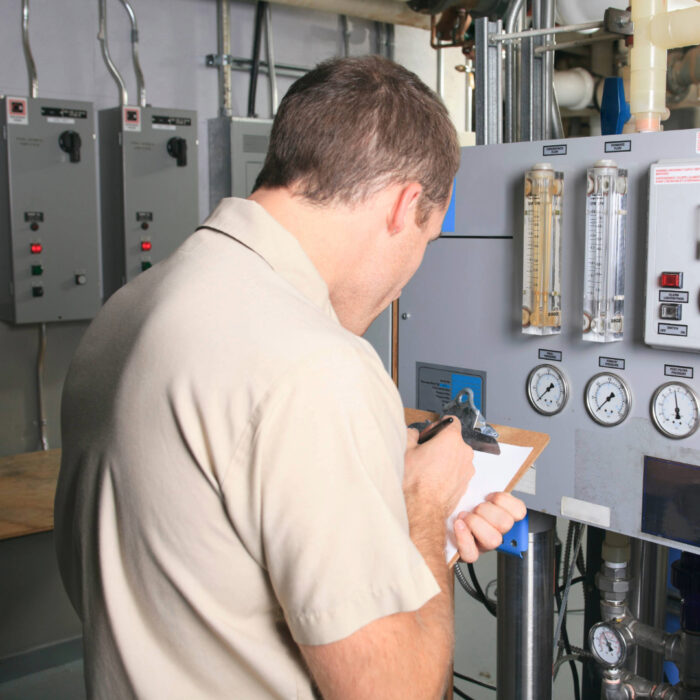
Remaining compliant with UK law
In the UK, commercial boiler maintenance is crucial to ensure compliance with government health and safety regulations.
Employers are required by Health and Safety at Work 1974 to implement regular inspections and maintenance routines on equipment to ensure safe workplaces. Businesses are also required to keep an accessible record of inspections.
Additionally, under the Gas Safety (Installation and Use) Regulations 1998, businesses must have boilers regularly inspected by a Gas Safe-registered engineer to prevent risks such as gas leaks and carbon monoxide exposure.
Environmental regulations also play a role. Inefficient, poorly maintained boilers may produce excess emissions, violating laws like the Clean Air Act 1993. Regular maintenance helps ensure businesses meet safety, health, and environmental standards, avoiding legal and financial risks.
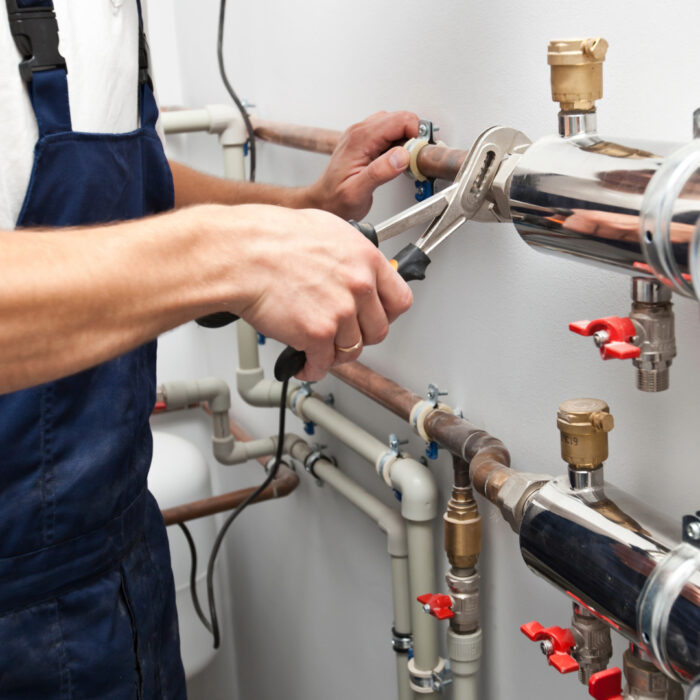
Saving costs by avoiding breakdowns
Boilers, like all complex machinery, are prone to breakdowns. Routine inspections and servicing allow businesses to identify and address minor issues like leaks, corrosion, and component malfunctions before they become major problems.
This proactive approach not only prevents unexpected equipment failures but also reduces the likelihood of having to spend excessive amounts of money on emergency repair costs, which are typically much higher than planned maintenance expenses, especially during peak times or outside of normal working hours. A small leak or a minor component malfunction, if caught early, can be fixed at a fraction of the cost compared to a major breakdown that might require extensive repairs or even a complete boiler replacement.

Avoiding downtime and other disruptions to the workforce
A well-maintained boiler ensures that heating, hot water, and other essential services are reliable and consistent, which is critical for maintaining a productive work environment. Boilers are critical for providing consistent heating and hot water, especially in environments such as offices, hospitals and retail establishments. If a boiler unexpectedly fails, it can lead to significant interruptions, such as employees working in uncomfortable conditions due to inadequate heating. This will reduce employee comfort, morale and productivity.
In addition, boiler breakdowns can disrupt business operations. Businesses that rely heavily on a functioning boiler, such as those in manufacturing and hospitality, can experience significant operational delays and financial losses. Unexpected failures can also halt production lines, disrupt supply chains, or even affect customer satisfaction, which can cause damage to a company’s reputation.
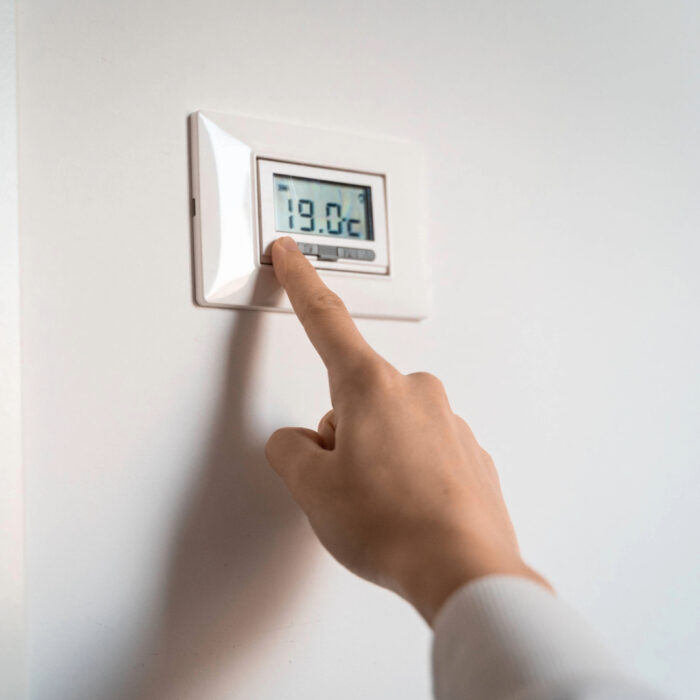
Helps to keep your building energy-efficient
Boilers naturally lose efficiency over time as parts wear down, components accumulate debris, and systems become out of calibration. When a boiler isn’t performing at peak efficiency, it uses more fuel to produce the same amount of heat, resulting in increased energy consumption and lower utility bills. Routine maintenance helps keep the boiler in top condition by cleaning components, fine-tuning settings, and ensuring that everything works properly, allowing businesses to avoid a significant increase in fuel consumption and reduce unnecessary energy waste.
One of the key areas where maintenance enhances efficiency is in addressing issues like scale buildup or corrosion, which can hinder heat transfer and force the boiler to work harder. Scale buildup inside heat exchangers, for example, acts as an insulator, reducing the boiler’s heat transfer efficiency. Regular descaling and cleaning help to maintain effective heat transfer, allowing the boiler to operate at peak efficiency while using less energy.
Businesses that invest in regular boiler maintenance not only improve the system’s energy efficiency but also lower their overall fuel consumption, helping them to reduce their carbon footprint and achieve their sustainability goals.
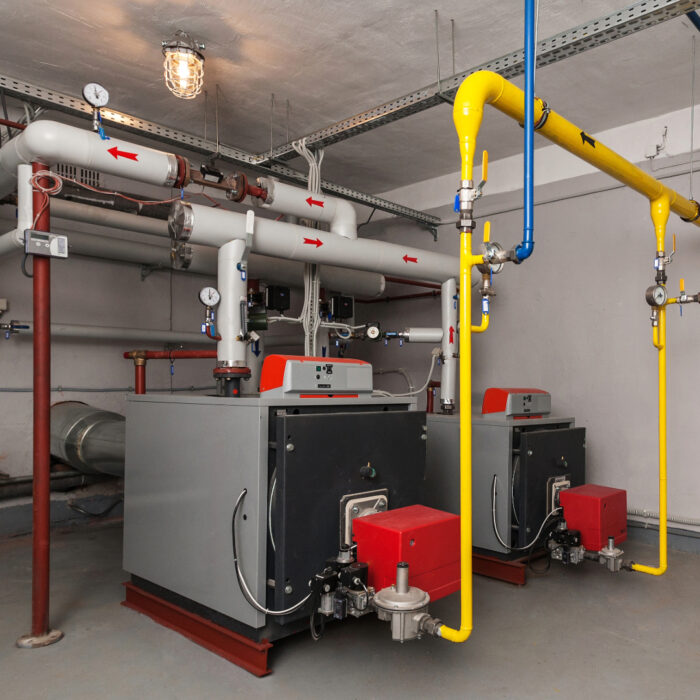
Prolonged equipment life
In addition to reducing their efficiency, continuous use of boilers can lead to the deterioration of critical components. Neglected boilers have to work harder to produce the same amount of energy, putting more stress on components such as pumps, valves, and heat exchangers. If left unaddressed, this excessive wear can result in poor performance and, eventually, system failure.
Routine inspections and servicing help to keep the boiler’s components in good condition, preventing corrosion, scale buildup, and mechanical wear. Businesses that perform regular maintenance can help reduce the strain on critical components by performing regular lubrication of moving parts and identifying and addressing signs of corrosion before they damage the equipment. This helps to avoid high levels of stress on the system and reduces the likelihood of premature breakdowns.

Employee safety
When boilers are neglected, they can develop issues such as gas leaks, pressure malfunctions and overheating, all of which pose serious risks to workplace safety.
Boilers operate under high pressure, and malfunctions in controls or safety valves can lead to catastrophic incidents like explosions. Regular inspections ensure that pressure relief valves, gauges, and safety switches function properly, reducing the likelihood of a serious accident.
Regular maintenance helps to prevent the accumulation of hazardous substances like carbon monoxide. Carbon monoxide is a colourless, odourless gas that can be fatal if inhaled at high concentrations. Inhaling this can have serious health consequences, such as tissue and organ damage, respiratory failure, and difficulty breathing.
Additionally, maintenance helps prevent the accumulation of debris and soot, which can increase the risk of fires. By ensuring that the boiler remains clean and well-maintained and that ventilation systems are in good working order, businesses can significantly reduce fire hazards and maintain safe air quality levels in the workplace, helping to maintain a safe working environment for employees.
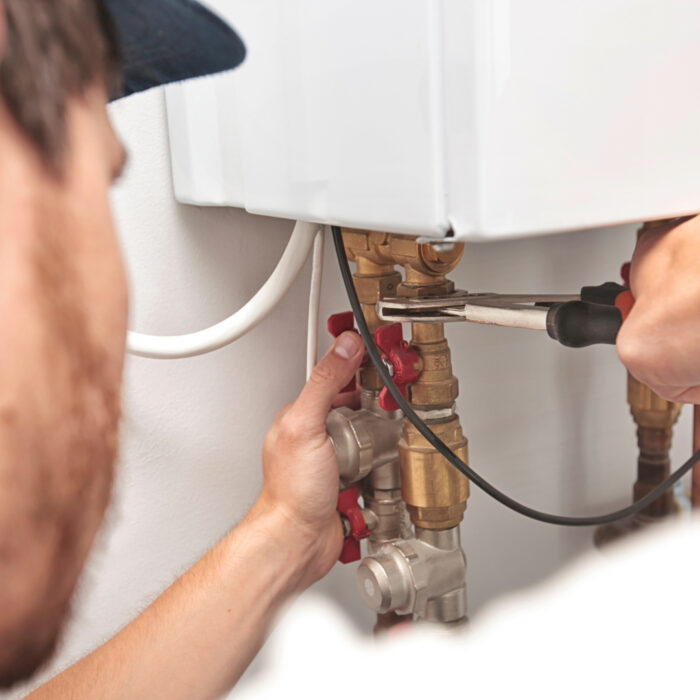
What does a boiler service include?
A standard boiler service usually follows a set process to ensure that the system runs efficiently, safely, and in accordance with regulations. This includes:
- A visual inspection: the boiler is checked for signs of wear, leaks and corrosion.
- A component inspection: key components such as pumps, valves, controls and heat exchangers are inspected and tested to ensure they are in good working order.
- Pressure testing: the boiler is examined to ensure it can withstand the operating pressure.
- Flue gas testing: carbon monoxide, carbon dioxide and oxygen levels are tested.
- Water quality testing: the water inside the boiler is tested for contaminants that may affect its performance.
- Cleaning: any scale and debris discovered are removed from the boiler and heat exchanger.
- Lubrication: grease is applied to all moving parts to prevent component seizure.
- Safety checks: safety devices within the boiler are tested to ensure they are functioning correctly.
- Performance testing: the boiler’s output and efficiency are tested to verify its performance and condition.
- Documentation: findings and recommendations are recorded and provided to the business.
How often should they be serviced?
It is highly recommended that gas boilers be serviced at least once a year to ensure the safety of the premises. However, in high-demand settings, such as large commercial buildings or facilities with extensive heating requirements, more frequent servicing (every six months) is advised.
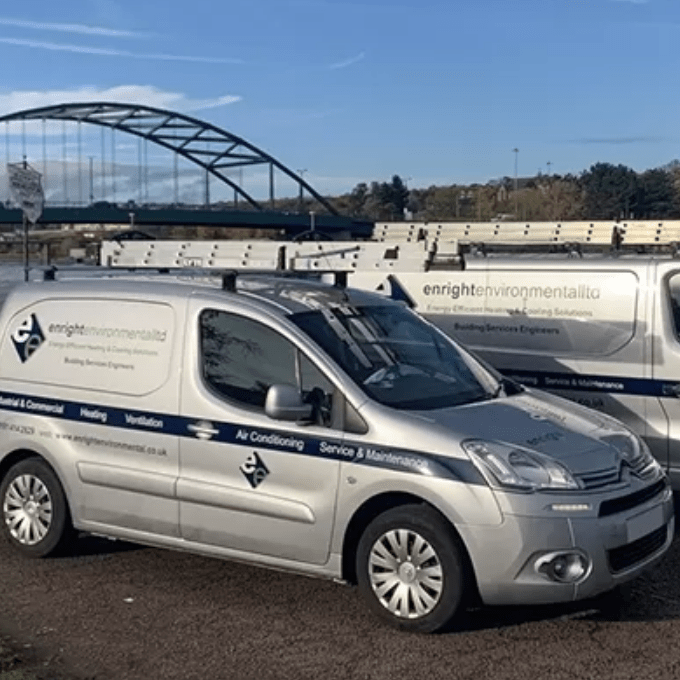
How Enright Environmental can help
At Enright Environmental, we can provide expert boiler maintenance services designed to ensure your system operates safely, efficiently, and in compliance with regulatory standards.
With skilled technicians and a comprehensive approach, we can provide routine inspections, thorough cleaning, and essential testing to prevent breakdowns and optimise energy efficiency.
Our team can work with you to develop a carefully tailored boiler maintenance schedule to help your business avoid costly repairs, prolong the lifespan of your boilers, and maintain a comfortable and safe working environment.
To schedule a service or to learn more about our maintenance services, contact our team today.

25th July 2024
The cost of renewable energy: Where to invest for the best payback
Renewable energy has emerged as a powerhouse in recent years for businesses and investors. From solar to
Read More »
9th July 2024
Legionella prevention: How to ensure the safety of your HVAC system
A commercial building owner in charge of HVAC systems should be aware of Legionella bacteria pneumophila, a
Read More »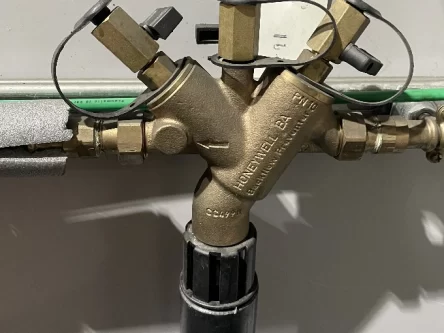
20th June 2024
Ensuring safe water supply: the critical role of RPZ valves in commercial premises
From busy factories and educational facilities to office blocks, all commercial spaces require a safe and uncontaminated
Read More »